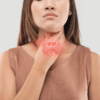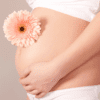Diagnosing with Chinese Medicine
The basic difference between a Western medicine diagnosis and diagnosing with Chinese medicine is that rather than being most interested in vital signs and indicators of disease, the latter examines the whole person. Because Chinese medicine is centuries old, it relies upon “four pillars” of diagnosis: Looking, Asking, Smelling/Hearing, and Palpation.
Chinese medicine doctors are just as interested in a person’s physical issues as in other aspects of their lives, including their relationships, life stresses, or spiritual state. What really makes Eastern medicine so different is that there is no one-size-fits-all approach. For example, diagnostic tests may reveal that a person with stomach pain has a peptic ulcer. If two more patients present with peptic ulcers, chances are good that all three patients will be treated with the same medication and protocol regardless of any other information. However, the Chinese medicine doctor attempts to discover as many sources for stomach pain as possible by uncovering all the circumstances surrounding it. Even if the endoscopic exam concurs that there is a peptic ulcer present, each patient responds differently to environmental and lifestyle factors, meaning that the diagnosis would be unique to the individual, and therefore, so would the treatment.
Look Both Ways
Dr. Iona begins assessing from the moment you meet. She may check your stature, gait, facial complexion, nails, eyes, ears, and tongue, which all reveal clues to the state of your health and any imbalances. Some of these things can even be inferred during your initial intake via telehealth.
Two important facets of observation include facial diagnosis and tongue diagnosis. Like all Chinese Medicine, facial diagnosis dates back thousands of years. It was originally used to determine illness and doctors frequently used it to avoid palpating the body. The face is viewed as a map with each area corresponding to specific organs in the body. You, too, have been reading faces since you were born. It is one of the first things human beings do; babies love to read facial expressions.
When there’s an imbalance, the location of facial blemishes represents the affected organs and can allow acupuncturists to hone in on issues that may be at play. For example, dark, puffy circles under the eyes could represent a kidney imbalance and fluid retention. Rosacea on the cheeks might mean heat in the stomach region. Likewise, acne around the chin could indicate hormonal imbalances. The spot between the eyebrows corresponds to the Liver. The Liver’s role is to detox the body. So, an increase in alcohol or stress can cause outbreaks here.
It’s On The Tip of Your Tongue
Tongue diagnosis is another essential part of diagnosing with Chinese medicine. The tongue is examined for shape, color, texture, body features, coating, and coating coloration. The tongue is divided into areas that relate to the meridians and organ systems throughout the body. Let’s look at the heart: If the heart is in balance, the tongue will be a healthy red color. Conversely, if there is insufficient blood in the heart, the tongue may appear pale. If there is blood stagnation, the tongue will appear dark purple. Cracks or lines down the center of the tongue may also indicate an imbalance of the heart in some way. A red tip of the tongue is defined as “Heat Rising To The Heart.” This can manifest as irritability, restlessness, racing thoughts, insomnia, and anxiety. Since “heat rises,” we look at where the heat is rising from, which is usually the liver. Emotionally, the liver is the seat of anger, so oftentimes that red tip of the tongue may be a sign of repressed anger and emotions moving up to the heart channel because they are not being released.
Twenty Questions
At every visit, Dr. Iona will ask a variety of questions. In Chinese medicine, these are called the Ten Questions. This dialogue provides key information about your health and how each treatment should be tailored. How is your head? Does it ever ache? Do you ever feel dizzy? How are your ears? Do you hear well? How are your mouth, your bones, your hair, and your scalp? Do you perspire? How are your bowels? Do you dream? These are just some of the many questions we ask during a traditional acupuncture exam. They tell a much deeper story than you might think.
The last question, for example, is usually a follow-up to understanding how you sleep. The subject of dreaming gives data about what you usually are not aware of such as fears, desires, traumas, expectations, self-image, creative blocks, and more. The question does not relate to dream analysis, but rather the images, which give clues to specific imbalances. Certain subject matter in dreams may also indicate acupuncture points that need attention. From a Chinese medicine perspective, there is nothing a patient says or does that is not important to their own personal health.
The Nose Knows
Dr. Iona also listens to the sound of your voice and breath. Are you soft-spoken or deep? Do you have difficulty breathing? Do you sigh often? Constitutionally, we also all have an odor and this, too, relays important information. It is not a body odor, but rather a specific smell that corresponds to the imbalance of an Element. These smells are not usually noticeable to the untrained nose.
For example, a person with an imbalance in the Wood Element (liver and gallbladder), might present with a rancid odor. The liver/gallbladder meridians look after the production and storage of bile, which is responsible for breaking down fats. If this energy is weak, a smell of fat or like oil that has gone bad could be noticed. Similarly, a disharmony in the heart and small intestines is related to the Fire Element. It makes sense then that the smell associated with this Element is Scorched. This is the smell of burning, best thought of as freshly ironed clothes. Other smells are related to the lungs and large intestine, stomach and spleen, and bladder and kidneys.
With Every Beat of Your Heart
Palpation involves taking your pulse and palpating various body points including skin, hands, feet, chest, and abdomen to infer the location, nature, and state of an illness. Taking note of tenderness or changes in temperature, such as cold hands and feet, or a warm core, may also indicate different imbalances.
The pulse tells a whole different story, and is essential in diagnosing with Chinese medicine. In Chinese medicine, there are 28 different pulse qualities and it can take a practitioner many years to become acquainted with all of them. Each one allows the acupuncturist to recognize signs that point to different disharmonies, which then dictates treatment using various acupuncture points and/or herbs for healing to take place. A lot of information can be gathered by nuances in the pulse. Rate is noted, but what an acupuncturist really tunes into the overall quality of the pulse as in strength, width, shape, depth, length, and more. Examples of the quality of pulses and what they point to as far as potential diagnosis are:
- a “floating” pulse can indicate the body trying to fight off an outside virus
- a deep and weak pulse can indicate a more chronic internal illness
- a “wiry” pulse can indicate pain and/or emotional stress
- a “slippery” pulse can indicate phlegm in the body and is also a normal pulse during pregnancy
Like tongues, pulses vary from person to person and change over time, often even within a single treatment. Diagnosing with Chinese medicine is quite involved; it does not evaluate an illness or condition-based purely on the symptoms a person is having, but rather, on complex patterns of disharmony in the body that can be revealed through various channels of discovery.










